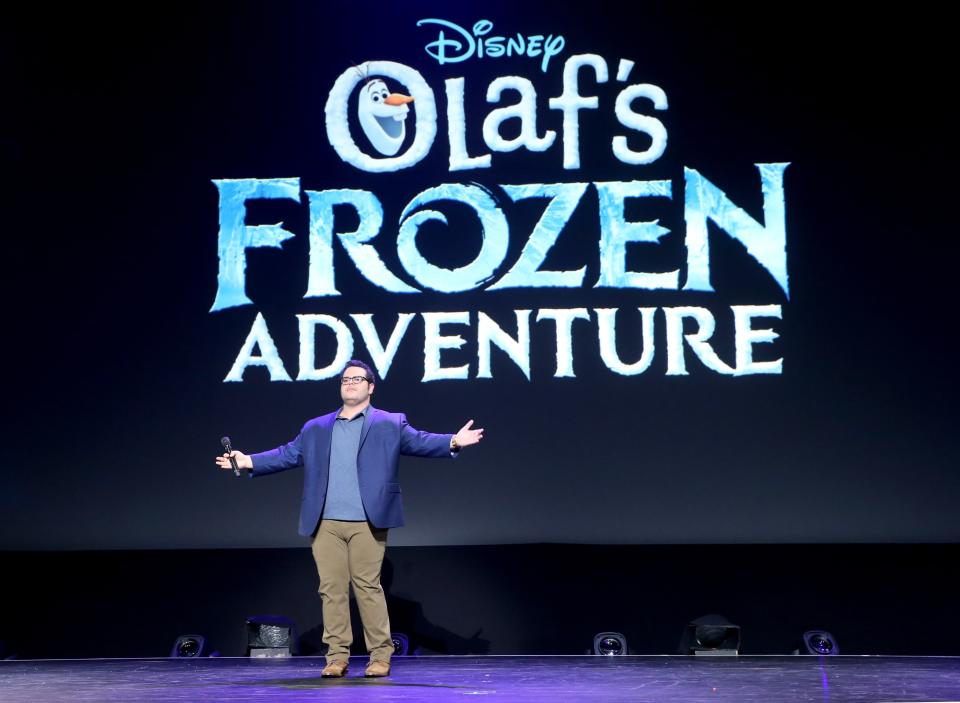Why Disney doesn't need Netflix
If you think Disney is making a mistake in ditching Netflix, think again.
When Disney announced this week that it would end its partnership with Netflix and instead launch its own Disney streaming service, shares of both companies tumbled. That’s not surprising: at first blush, this is scary news for shareholders of both. Netflix will lose extremely valuable Disney content, and Disney will take a major risk in jumping into the very-crowded streaming space on its own. (It’s easier to just sell your content to an established service than try to build a service yourself, right?)
But pundits often forget, when they talk about Disney, all of the incredibly valuable intellectual property it now owns. It is property that consumers, especially families, will pay up for.
Disney’s recent box office run is staggering. In 2016, all of the top-five highest-grossing movies globally were from Disney. Even more impressive: they were all from different Disney-owned divisions: “Captain America: Civil War” (Marvel); “Rogue One” (Lucasfilm); “Finding Dory” (Pixar); “Zootopia” (Disney Animation); and “Jungle Book” (Disney, live-action).
Disney also set a new global record for movie studios in 2016 by breaking $7 billion at the box office.
Netflix will lose those valuable movies at the end of 2018, movies like “Frozen,” “Inside Out,” “Rogue One,” and “The Avengers” franchise.
And Disney content isn’t just movies. It’s ABC, Freeform, and A&E. That’s “Quantico,” “Pretty Little Liars,” and “Duck Dynasty,” to name just one big example from each.

Netflix is going to lose all of those shows. (It gets to keep Netflix-exclusive Marvel shows, like “Daredevil” and “Luke Cage.”) As Piper Jaffray wrote in a Netflix analyst note after the announcement, “We recognize the strength of this [Disney] content, particularly for parents of younger children.”
Original content (movies and TV shows), in fact, is what Disney is known for these days. It isn’t the parks and resorts, which now make up just 20% of Disney’s profit. The media networks division, which houses ABC, ESPN, A&E, and Disney’s stakes in Hulu and Vice, contribute more than half of its profit.
Certainly Netflix has many other partners providing it with content, and many of its most-watched shows are its own original series. So there’s reason for Netflix optimism. But there’s also serious reason to expect that consumers will happily subscribe to the Disney streaming service. “Netflix doesn’t need Disney,” writes Yahoo Finance’s Justine Underhill. But the inverse is also true: Disney doesn’t need Netflix.
As cable continues to fragment, the streaming services are piling up, and many are starting to find that between their Netflix, Hulu, Amazon Prime and HBO Now subscriptions (to name just a few), they’re actually spending more than they did on cable. But the experience that these services give is the key: they make consumers happier than cable did.
In other words, the success of Netflix and Disney, after they break up, is not mutually exclusive.
Then again: will you pay for both?
—
Daniel Roberts covers tech and media at Yahoo Finance. Follow him on Twitter at @readDanwrite.
Read more:
Why Disney is so much more than Mickey Mouse now
Disney’s ESPN problem comes down to simple math
How baseball’s tech arm got so big that Disney had to have a piece
Hulu skinny bundle is the latest sign of Disney yielding to cord-cutting
